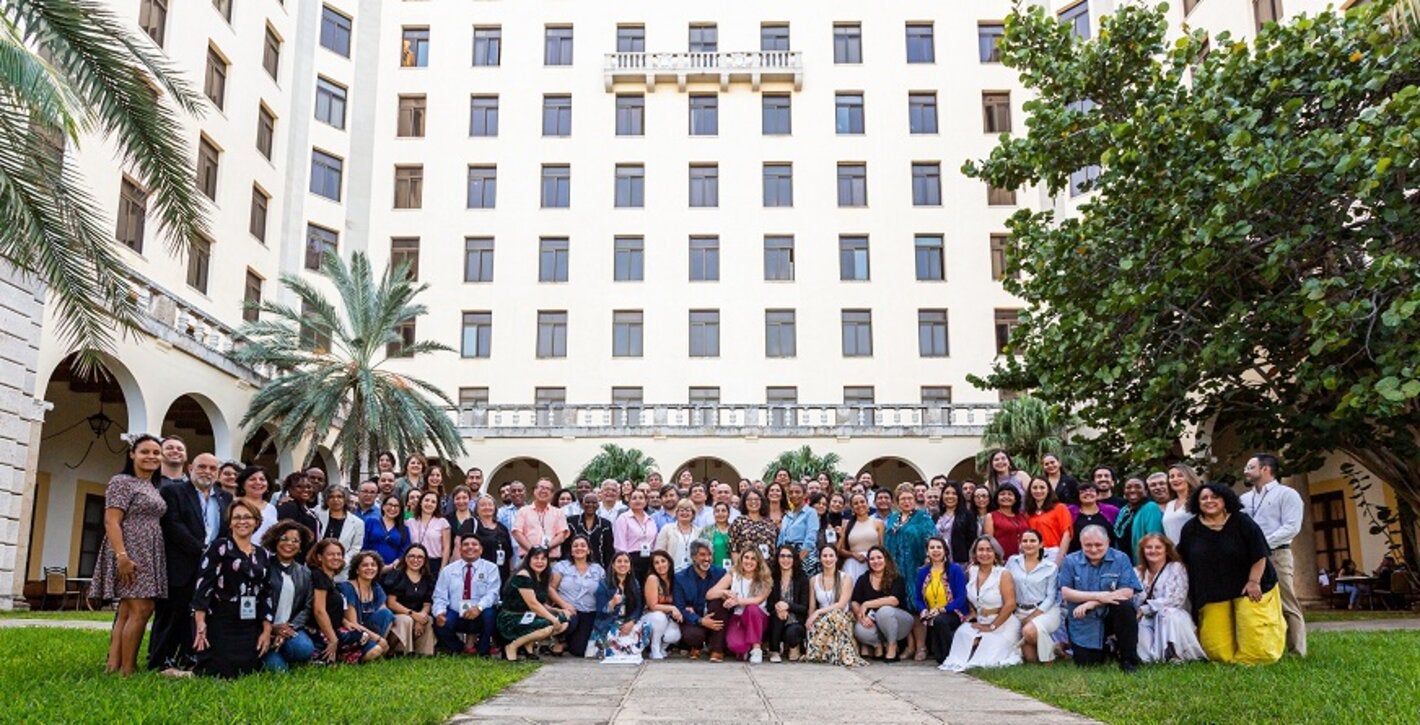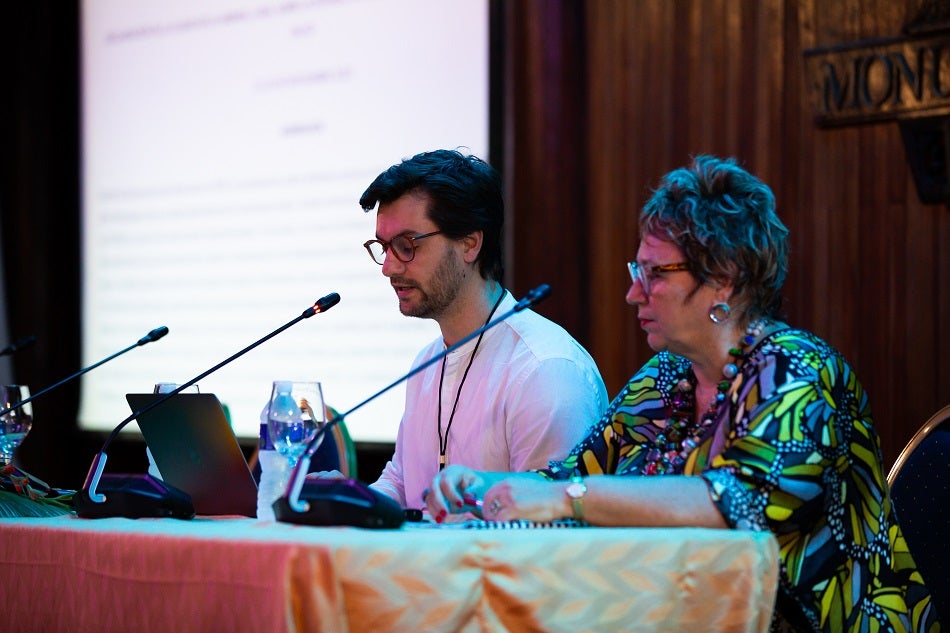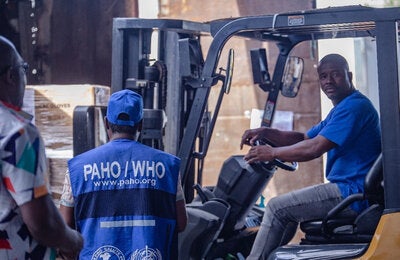
The meeting, organized in La Havana, Cuba, by PAHO and WHO, gathered 140 participants from 20 countries of the region and it brought together members of national and local governments, civil society organizations, academic institutions, and citizens.
Havana, Cuba, 27 November 2023 – More than 140 participants from over 20 countries attended the 1st Conference on Intersectorality for Health Equity in the Americas, which was held in La Havana, Cuba, on November 21-23, 2023. During the meeting, organized by PAHO and WHO, was launched the Network on Intersectoral Work and Social Participation for Health Equity in the Americas (TIPSESA Network, in its Spanish acronym). The event, which received the support of the Public Health Agency of Canada (PHAC), gathered members of national and local governments, civil society organizations, academic institutions, and citizens of the region.
The Network, which brings together "diverse actors in the region of the Americas committed to social justice," was created with the aim of exchanging experiences and lessons learned, as well as strengthening capacities and competencies on intersectorality to "reduce inequities in health by addressing their social determinants."
Havana Declaration on Intersectorality
Besides the Network, the Havana Conference concluded with the approval of the Declaration on Intersectorality to Advance Health Equity. It states that "the construction of healthy and equitable societies can only be achieved through sustained intersectoral work, the active inclusion of the community and a constant evaluation of the efforts and impacts on the reduction of health inequities."
The Declaration establishes four commitments:
- the need to consolidate well-being systems as essential foundations for health equity, recognizing that intersectorality stands as a central pillar in this mission,
- the critical importance of intersectorality as a powerful tool to address the obstacles that limit equitable access to health,
- the need for the active and meaningful participation of society in intersectoral processes,
- the need to emphasize the leading role of local governments which, in close liaison with national and subnational governments and other significant social actors, have an essential role to play in the development of intersectoral actions at the territorial level.
Call for experiences on intersectoral work
During this 1st Conference on Intersectorality for Health Equity were presented 27 experiences focused on this subject in the Americas. Those initiatives were among the 39 proposals chosen by PAHO in a call launched by the organization from September 8 to October 16 aiming at identifying experiences involving work between sectors to promote health equity.
Out of those 27 projects, 16 were explained in a particular conference on the subject during the Conference in La Havana and the other 11 as posters in an exhibition. Regarding the 39 proposals selected in the call, they came from Brazil (15), Argentina (4), Chile (4), Canada (3), Colombia (3), Cuba (2), Ecuador (2) and one from United States, Paraguay, Peru, Dominican Republic, and Uruguay.
Among the topics included in these proposals are: intersectoral actions to address social determinants in order to promote healthy living conditions, as well as intersectoral actions to favor access to health for groups in vulnerable situations, and to strengthen the monitoring and comprehensive evaluation of the social determinants of health.
Regarding this PAHO call, 240 proposals were received in total, 3 of which were incomplete forms and 13 were duplicates, leaving a total of 224 valid applications coming from 18 countries (17 belonging to the Americas and one from Nepal). Most of them were received from Brazil (111), Colombia (22), Chile (20), Argentina (19), and Canada (10).
PAHO will work throughout 2024 in a systematization process of those experiences to produce a final report on the subject. At the end of February, a PAHO report about the Conference held in La Habana will be released.






